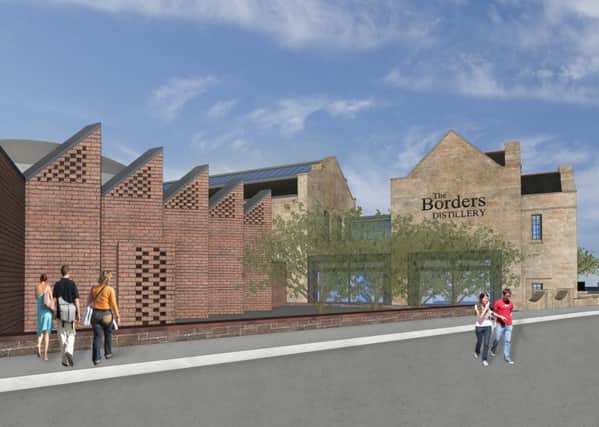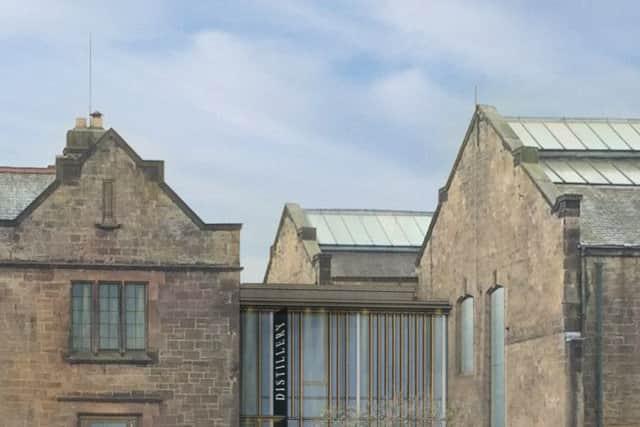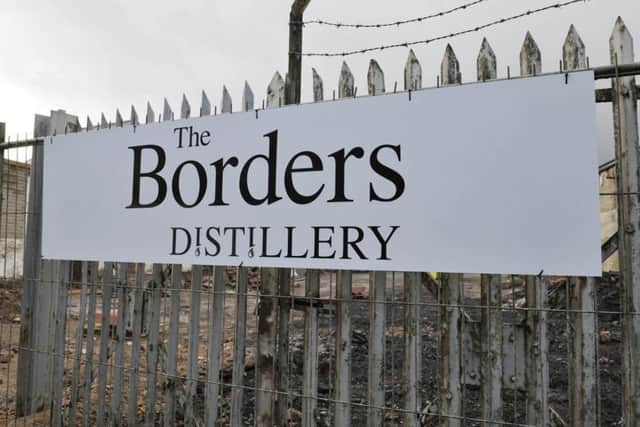£13m Hawick whisky distillery planning to waste not, want not


The extra cash the Glasgow-based Three Stills Company is hoping to raise for the waste-processing operation would take the budget for its Commercial Road distillery to £13m.
Plans to convert the Hawick Urban Electric Supply Company’s old home into the first large-scale distillery in the Borders for 200 years were approved last July.
Advertisement
Hide AdAdvertisement
Hide AdThe latest proposals for the site would see a facility for turning waste from the distilling process into biogas, and that, in turn, would be used in a steam boiler to help power the whisky-producing operation.


John Fordyce, a co-founder of the Three Stills Company, told the Hawick News: “Distilleries produce co-products, as what once was considered waste is now known as in Scotland, which is an inevitable part of the distilling process, and in traditional facilities, these co-products are usually taken off in a lorry to another site.
“However, the Scottish Government and the Scotch whisky industry has an agreement for targets to remove that waste and potential harm to the environment through co-products and the use of renewable energy.
“We will use these co-products to create our own energy, and we will also not be creating pollution through the likes of having to use additional lorries that may be commuting over long distances, so we are now trying to comply with that agreement.
Advertisement
Hide AdAdvertisement
Hide Ad“By processing 100% of our liquid co-products to make biogas, we remove any potential harm to the environement.


“We are basically keeping everything on site, and we would have no waste. It would be a circular process.”
In an unusual move for an entire industry, it was announced last September that makers of Scotch whisky would agree to targets to see 40% of energy used in production come from non-fossil fuels by 2030, and that is hoped to double by 2050.
Adding to that, the Borders Distillery, as the new site will be known, will offer draff, another name for spent barley, to local farmers to be used as animal feed for livestock.
Advertisement
Hide AdAdvertisement
Hide AdIt is expected that 20 new jobs will be created at the site and that whisky production will begin later this year, with the distilling process expected to start at the end of August.


Renovation work to the site is currently ongoing.
John added: “This is at the forefront of modern distilling and is something quite new, different and funky, which is what we are all about.”
Hawick and Denholm councillor Watson McAteer has welcomed the latest proposals, saying: “The proposal to build a zero-waste facility at the Borders Distillery is highly innovative, and using co-products generated from the manufacturing process to help generate power will reduce costs and improve the environment in Hawick.
“I am confident that this will satisfy the planning authority and be agreed soon to allow distilling to take place later this year.”


Advertisement
Hide AdAdvertisement
Hide AdThe plant has been designed by Berkshire-based Clearfleau, a firm specialising in engineering solutions to enable food and drinks companies to become more sustainable and environmentally friendly.
It will turn co-products from the distillery into biogas using a process called anaerobic digestion.
Rosemary Gallagher, head of communications at the Scotch Whisky Association, said: “The Scotch whisky industry has a long-term commitment to sustainability and has an ambitious and far-reaching environmental strategy.”
“The strategy was launched in 2009 and refreshed last year as a clear sign of bold industry intentions on sustainability, and it is the only one in Scotland covering an entire industry.
“Scotch, made with only the three raw materials of water, cereals and yeast, is very much a product of its natural environment.”